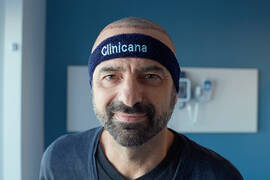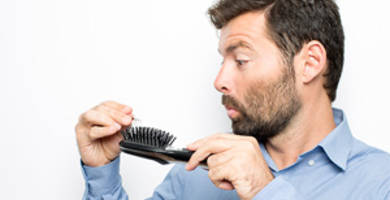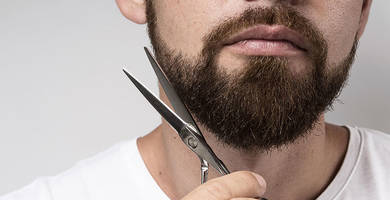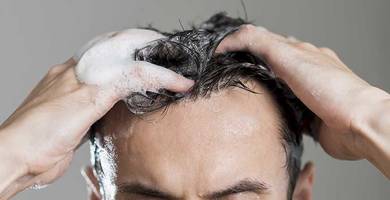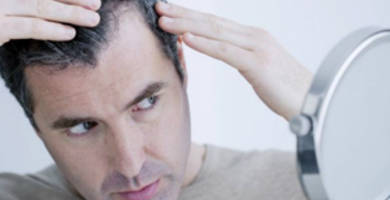Hair transplant side effects and risks
By Prof. Dr. Soner Tatlidede 2021-08-27
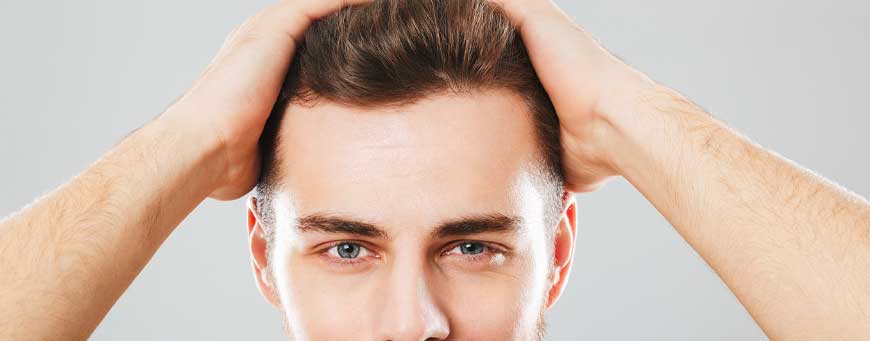
What are the hair transplant side effects? Hair transplants are currently - in most cases - the best option for people suffering from alopecia: they are a definitive solution that allow hair to recover forever; and thanks to modern techniques such as the FUE transplant, it is practically painless and causes hardly any discomfort for patient.
In the last years, Turkey and Istanbul in particular has become the world’s capital of hair implants thanks to the excellent skills of its doctors and the affordable cost of a hair transplant. However, not all hair clinics are the same, and not all transplants go well; like any operation, this one can also have complications, and side effects may appear after hair transplant. So, let's talk about hair transplant benefits... and side effects: and how to prevent them!
Are hair transplants safe?
A hair transplant surgery is normally safe when performed by a qualified, experienced board- certified plastic surgeon. Around 50% of men suffer from some type of alopecia, and more and more men – and women - are becoming interested in hair transplants as a solution to their problems. The FUE technique is minimally invasive, leaves no scars, offers definitive results in a few months, and since patient's own hair is transplanted, there is no possibility of rejection.
However, it is important to make clear that not all people who suffer from hair loss problems are suitable to get a hair transplant; therefore, if the medical professional evaluating our case does not correctly detect the causes of alopecia, and still recommends performing a transplant, we may end up losing part or all transplanted hair.
Because of that, it is very important that the evaluation and surgical intervention be carried out by a surgeon with enough experience and training; but it is also vital that the operation itself be carried out in a sterile and safe environment and following the proper procedures, in order to avoid most of hair transplant side effects and risks.
But even if the operation is performed by an expert medical team and with all the necessary requirements, we must not forget that each patient is different, and complications or adverse reactions can always occur after a surgery. In any case, we must emphasize that hair transplants have no permanent side effects: in fact, side effects appear very rarely, and are not serious and easily treatable. Besides, FUE hair transplant does not have side effects in the long term: they disappear in days, or weeks at most.
What are the side effects of hair transplant?
So, what are the risks and side effects of FUE hair transplant? In the following lines we detail the main hair transplant risks and side effects; but, in order to prevent any side effects of hair transplant, we advise you to put yourself in the hands of experts and - above all - always follow their recommendations: thus, you will reduce the risk to almost 0 and, in case of any complication, it will be solved it in a matter of days.
Infection:
If the surgery has not been carried out following the appropriate hygiene and disinfection protocols, the risk of subsequent infections increases. Antibiotics are usually administered to the patient during transplantation, so these are very atypical cases. Later infections can also occur during the healing of follicles if medical recommendations - for example on how to wash hair after transplant - are not followed.
Edema or swelling:
It is common for edema to appear in the forehead area after hair transplantation, but normally it disappears after 3-4 days; this is due to the fact that during the intervention, serum and anaesthesia are injected into scalp, and body takes several days to absorb it: that is why a compression band is placed on forehead, to prevent these components from descending towards face. Anyway, it is a mild side effect that is solved with anti-inflammatories, and following advices on how to sleep after a hair transplant.
Redness and scabbing:
These are two practically unavoidable side effects after a hair transplant. Redness is quite common, because it is a natural body reaction to the surgery. As for the formation of scabs in the receiving area, these disappear after healing, in about 10 days; it is essential not to touch or scratch them - despite itchiness - because you could damage newly implanted follicles.
Shedding of grafted follicles:
More than a side effect, it is an unwanted risk; but it occurs more frequently than it should, usually because patients do not follow recommended cares after transplantation. Besides, it is normal that a small percentage of implanted follicles do not take root; furthermore, this should not be confused with the so-called shock loss effect, which causes a total loss of transplanted hair... and is absolutely normal (don’t worry: hair will grow again!!).
Discomfort and itching:
After the operation, discomfort or pain are usual hair transplant treatment side effects during the very first days, even despite the fact that the FUE technique is minimally invasive; it is also common to feel itchy while the healing process lasts (it takes about 10 days). These problems are easily solved with painkillers and with special lotions or shampoos.
Pimples:
After the intervention, it may happen that hair follicle becomes infected, causing the appearance of dots with pus or pimples around hairs. This is the so-called folliculitis, a minor, mild infection that has a higher risk of appearing in beard transplants, and that is easily cured.
Numbness:
Another side effect that may appear is numbness or loss of sensitivity, both in the donor or in the recipient area. Usually, it does not last more than some days or weeks after the surgery (sometimes even months), and it disappears on its own without major consequences.
How can I avoid hair transplant treatment side effects?
It must be stressed that, although nowadays a hair transplant with the FUE technique is the best solution for people who suffer from irreversible alopecia, not all people suffering from hair loss are suitable for this operation. Some types of alopecia are caused by autoimmune diseases that have no treatment, and that will also cause the loss of grafted hair; others, are caused by several pathologies that must be treated before attempting a hair surgery.
Therefore, the role of the specialist in charge of making a diagnosis of our particular case, is vital, since it will be he/she the one who will determine what is the best treatment to follow, and whether or not we can get hair implants (e.g. if there is no risk of shedding of the transplanted hair, if we have enough density in the donor area, etc.).
Hence the importance of going to a specialised, trustworthy clinic which can offer well-trained medical professionals, in order to avoid any of the FUE hair transplant side effects. Clinicana is the best hair transplant clinic in Turkey, and we have the best hair surgery experts in the country. Request your free consultation now, and ask for a free, no obligation estimate for your treatment.


